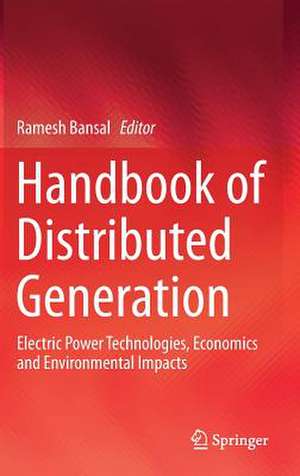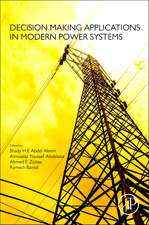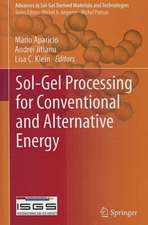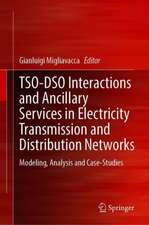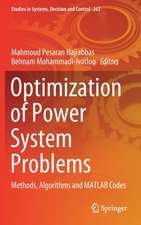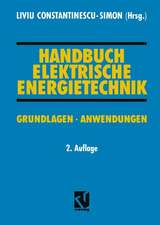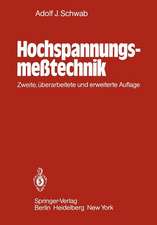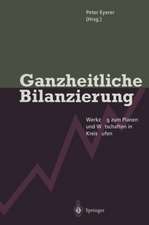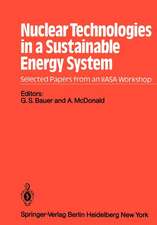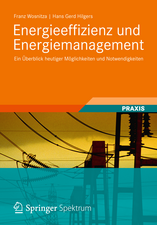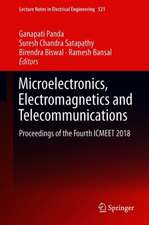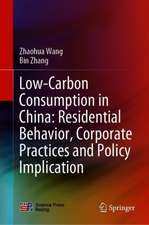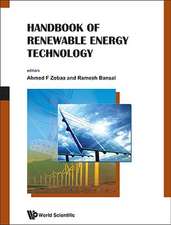Handbook of Distributed Generation: Electric Power Technologies, Economics and Environmental Impacts
Editat de Ramesh Bansalen Limba Engleză Hardback – 23 mar 2017
| Toate formatele și edițiile | Preț | Express |
|---|---|---|
| Paperback (1) | 1409.21 lei 6-8 săpt. | |
| Springer International Publishing – 4 mai 2018 | 1409.21 lei 6-8 săpt. | |
| Hardback (1) | 1863.63 lei 6-8 săpt. | |
| Springer International Publishing – 23 mar 2017 | 1863.63 lei 6-8 săpt. |
Preț: 1863.63 lei
Preț vechi: 2272.73 lei
-18% Nou
Puncte Express: 2795
Preț estimativ în valută:
356.65€ • 387.27$ • 299.58£
356.65€ • 387.27$ • 299.58£
Carte tipărită la comandă
Livrare economică 22 aprilie-06 mai
Preluare comenzi: 021 569.72.76
Specificații
ISBN-13: 9783319513423
ISBN-10: 3319513427
Pagini: 819
Ilustrații: IX, 819 p. 466 illus., 229 illus. in color.
Dimensiuni: 155 x 235 x 44 mm
Greutate: 1.79 kg
Ediția:1st ed. 2017
Editura: Springer International Publishing
Colecția Springer
Locul publicării:Cham, Switzerland
ISBN-10: 3319513427
Pagini: 819
Ilustrații: IX, 819 p. 466 illus., 229 illus. in color.
Dimensiuni: 155 x 235 x 44 mm
Greutate: 1.79 kg
Ediția:1st ed. 2017
Editura: Springer International Publishing
Colecția Springer
Locul publicării:Cham, Switzerland
Cuprins
Distributed Generation Technologies (Renewables & Conventional): Wind, Solar, Small Hydro, Biomass, Fuel Cells, Gas Turbines, Diesel Generators, IC Engines.- Distributed Generation in Smart Distribution Systems.- Distributed Generation in Micro-grids and Grid-connected Systems.- Generator Technologies: SEIG, DFIG, PMSG.- Distributed Generation Integration Issues: Voltage Fluctuations, Fault Levels, Stability.- Protection Systems for Distributed Generation.- Power Electronic Applications in Distributed Generation.- Control in Distributed Generation.- Storage Systems for Distributed Generation.- Grid Codes for Distributed Generation.- Power Quality in Distributed Generation Systems.- Distributed Generation in Electricity Markets.- Economic aspects of Distributed Generation. Environmental Impacts of Distributed Generation Systems.
Notă biografică
Prof. Ramesh Bansal has more than 22 years of teaching, research & industrial experience. He is currently a full Professor in the Department of Electrical, Electronic and Computer Engineering at University of Pretoria. In previous postings, he was with the University of Queensland, Australia, Birla Institute of Technology and Science, Pilani, India; the University of the South Pacific, Fiji; and Civil Construction Wing, All India Radio. Prof. Bansal has made significant contribution to the teaching and development BS Power Engineering Programme for NTPC (a 40 GW Indian Power Generation company) and ME Power Generation Programme for Queensland’s Power Generation companies (CS Energy and Stanwell Corporation). He has worked with Powerlink (Queensland’s Government transmission company) for special studies programme (SSP). He has carried out consultancy work for Fiji Commerce commission for Fiji Electricity Authority owned Power Plants. He has diversified research interests in the areas of Renewable Energy and Conventional Power Systems which includes wind, PV, hybrid power systems, distributed generation, grid integration of renewable energy, power systems analysis (reactive power/voltage control, stability, faults and protection), Smart Grid, FACTS and power quality. He has supervised several PhD students and has published over 175 papers in journals, conferences, books/chapters including the Handbook of Renewable Energy Technology, World Scientific Publishers Singapore, 2011 and Small Signal Analysis of Isolated Hybrid Power Systems, Alpha Science International,Oxford, 2008. Prof. Bansal is the Editor/Associate and Editor/Editorial Board member of many reputed journals including IEEE-Access, IET- Renewable Power Generation, and Electric Power Components and Systems. He is a Fellow, IET-UK, Fellow Engineers Australia, Fellow Institution of Engineers (India), Senior Member-IEEE and CPEngg-UK.
<
<
Textul de pe ultima copertă
This book features extensive coverage of all Distributed Energy Generation technologies, highlighting the technical, environmental and economic aspects of distributed resource integration, such as line loss reduction, protection, control, storage, power electronics, reliability improvement, and voltage profile optimization. It explains how electric power system planners, developers, operators, designers, regulators and policy makers can derive many benefits with increased penetration of distributed generation units into smart distribution networks. It further demonstrates how to best realize these benefits via skillful integration of distributed energy sources, based upon an understanding of the characteristics of loads and network configuration.
Caracteristici
Includes all information needed to understand and apply distributed generation technologies within existing electric grids
Covers renewable and conventional energy generation sources, including wind, PV, small hydro, fuel cells; gas turbines, diesel generators, etc.
Offers solutions to integration challenges in grid-connected systems, as well as issues that arise in isolated micro-grids
Highlights power electronics applications, power quality, control issues, storage systems
Provides practical context through discussion of economics, environmental impacts and electricity market conditions
Includes supplementary material: sn.pub/extras
Covers renewable and conventional energy generation sources, including wind, PV, small hydro, fuel cells; gas turbines, diesel generators, etc.
Offers solutions to integration challenges in grid-connected systems, as well as issues that arise in isolated micro-grids
Highlights power electronics applications, power quality, control issues, storage systems
Provides practical context through discussion of economics, environmental impacts and electricity market conditions
Includes supplementary material: sn.pub/extras
